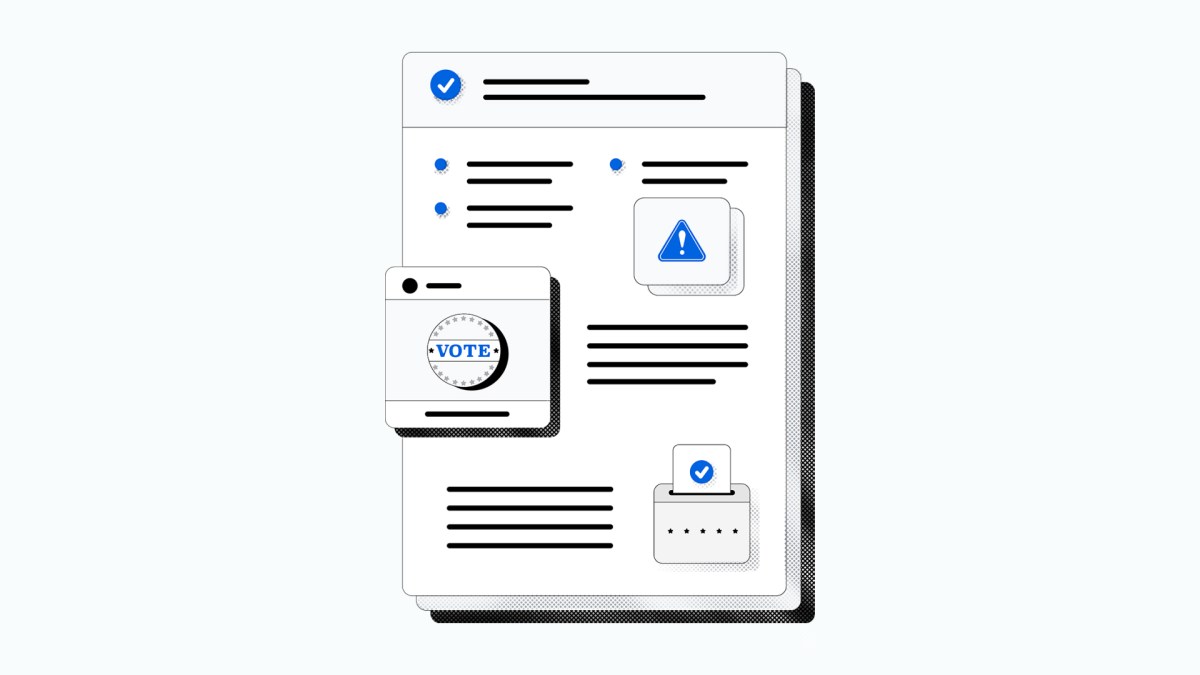In an extraordinary year marked by significant electoral activities worldwide, including major elections in countries such as the United States, India, Indonesia, Mexico, and the European Union, the role of digital platforms in facilitating public discourse has never been more crucial. Meta, the tech giant that owns platforms like Facebook, Instagram, and Threads, has taken center stage in this context, emphasizing its responsibility to safeguard democratic processes and ensure that individuals can freely express their opinions during these critical times.
Evolution of Election Integrity Efforts
Meta has been evolving its approach to election integrity since 2016, learning from past experiences to better anticipate and counter emerging threats. The company has established a dedicated team comprising experts from diverse fields such as intelligence, data science, product engineering, research, operations, content and public policy, and legal compliance. This multifaceted team is responsible for coordinating Meta’s cross-company efforts to maintain election integrity. In 2024, Meta operated several election operations centers across the globe, vigilantly monitoring elections in the US, Bangladesh, Indonesia, India, Pakistan, the EU Parliament, France, the UK, South Africa, Mexico, and Brazil.
Fostering Free Expression While Ensuring Safety
Meta acknowledges the delicate balance between enabling free expression and ensuring user safety, admitting that no platform can achieve this balance with 100% accuracy. The company recognizes that its policy enforcement sometimes results in high error rates, inadvertently stifling free expression. To address this, Meta has committed to continually refining and fairly applying its content policies to allow people to voice their opinions without fear of undue restriction or penalty.
Meta has introduced several initiatives to empower users with greater control over political content. These initiatives include:
- Political Content Controls: Meta launched features on Facebook, Instagram, and Threads that allow users to customize the amount of political content they see. Initially rolled out in the US, these controls are being extended globally.
- Content Moderation Policies: While users can discuss election processes in organic content, Meta enforces strict policies against content that speculates about election-related corruption or bias when linked to violence incitement. For paid content, Meta prohibits ads questioning the legitimacy of ongoing or upcoming elections—a policy in place since 2020.
- Fair Penalty System: In early 2023, Meta revised its penalty system to protect free expression while effectively addressing repeated policy violations.
- Hate Speech Policy Audits: Meta conducts annual audits of words designated as slurs, particularly in markets with imminent elections, ensuring the protection of vulnerable communities without over-enforcing political discourse.
- Public Figure Penalty Protocols: Meta updated its penalty protocols concerning public figures suspended for policy violations during civil unrest, ensuring equitable access to information from presidential candidates.
Connecting People with Reliable Voting Information
Throughout the 2024 elections, Meta played a pivotal role in connecting individuals with credible voting information via in-app notifications on Facebook and Instagram. These efforts included:
- Voting Information Notifications: During the 2024 US general election, reminders on Facebook and Instagram garnered over 1 billion impressions, directing users to official government websites for voting details. These reminders were clicked more than 20 million times.
- Collaboration with Election Officials: Meta worked with state and local election officials to deliver Voting Alerts, sending over 765 million notifications on Facebook since 2020. These alerts adapt to real-time changes, such as extended polling hours.
- Search Engine Results Page Interstitials: In the US, users searching election-related terms on Facebook and Instagram were directed to official voting information sources.
- Global Engagement with Voting Notifications: Meta’s top-of-feed notifications reached millions globally, facilitating voter registration and information dissemination in countries like the UK, EU, India, Brazil, and France.
Transparency in Political Advertising
Meta has maintained a high level of transparency regarding ads related to social issues, elections, and politics. Advertisers must complete an authorization process and include a "paid for by" disclaimer. These ads are stored in Meta’s publicly accessible Ad Library for seven years. Since January 2024, advertisers have been required to disclose the use of AI or digital techniques in creating or altering political or social issue ads.
Monitoring the Influence of AI
Entering 2024, concerns about the potential impact of generative AI on elections loomed large, with fears of deepfakes and AI-driven disinformation campaigns. However, Meta’s monitoring revealed that these risks did not significantly materialize. Instances of AI misuse were limited, and existing policies effectively mitigated related risks. Key measures included:
- AI Content Monitoring: During major elections, AI-related content constituted less than 1% of all fact-checked misinformation. Meta’s policies successfully curtailed AI-generated election-related deepfakes.
- Coordinated Inauthentic Behavior (CIB) Networks: Meta closely monitored potential AI use in CIB networks, finding minimal productivity and content-generation gains. Meta’s focus on behavior, rather than content, enabled effective disruption of these operations.
- Meta AI’s Role: Preceding the US election, Meta AI was programmed to direct users to authoritative sources for election-related queries, ensuring access to accurate information.
- Industry Collaboration: Meta collaborated with industry peers to counter potential AI threats, signing the AI Elections Accord and launching initiatives like a WhatsApp tipline in India to combat AI-generated misinformation.
Combating Foreign Interference
Meta’s teams have dismantled approximately 20 new covert influence operations worldwide in 2024, with Russia remaining the top source of these operations. Key findings include:
- Persistent Foreign Influence Sources: Since 2017, Meta has disrupted 39 networks linked to Russia, 31 to Iran, and 11 to China.
- CIB Network Tactics: Many CIB networks struggled to build authentic audiences, often resorting to fake likes/followers. Meta disrupted a campaign originating in Moldova, preventing it from garnering authentic audiences.
- Cross-Platform Influence Operations: Influence operations increasingly spread across multiple platforms, including those with fewer safeguards than Meta’s apps. Meta labeled content linked to foreign influence when reposted on its apps.
- Doppelganger Operation: Meta exposed the Doppelganger operation, which used a web of fake websites to disseminate disinformation. Meta’s repository of threat signals aids researchers and investigative teams in countering these operations.
- Expanded Enforcement: Ahead of the US elections, Meta banned Russian state media outlets globally for policy violations related to foreign interference, continuing efforts initiated over two years ago.
In conclusion, Meta’s approach to navigating the challenges of election integrity and free expression during a year of unprecedented electoral activity reflects a commitment to learning, adapting, and refining its strategies. The company remains focused on balancing free expression with security, ensuring that democratic processes are protected while enabling individuals to voice their opinions. As Meta looks ahead, it will continue to assess and evolve its policies to address emerging threats and support democratic engagement.
For more Information, Refer to this article.

































